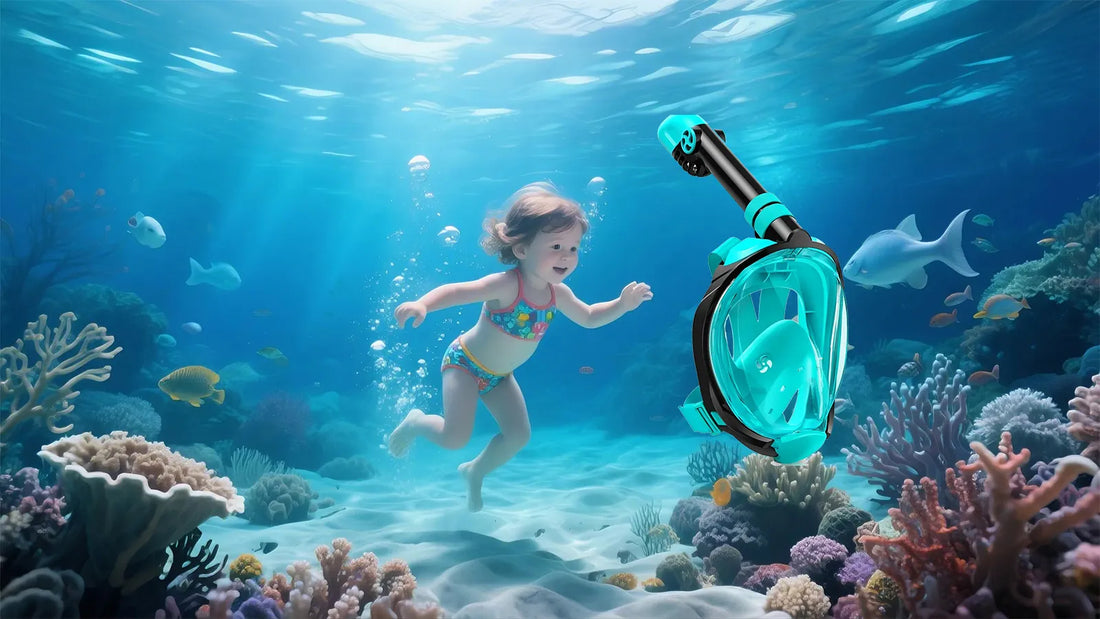Snorkeling is one of the most accessible and exciting ways to explore the underwater world. Whether you're gliding over coral reefs or observing colorful marine life, the experience is nothing short of magical. But for many, a pressing question arises: Do you have to know how to swim to go snorkeling? The answer might surprise you.
Understanding the Basics of Snorkeling
Snorkeling involves swimming on the surface of the water while using a snorkel to breathe. The primary equipment includes a mask, snorkel, and fins. Unlike scuba diving, snorkeling doesn't require extensive training or certification, making it a popular activity for people of all ages and skill levels.
Is Swimming a Prerequisite for Snorkeling?
While knowing how to swim can enhance your snorkeling experience, it's not an absolute necessity. Many snorkeling spots are located in shallow waters, where you can stand if needed. Additionally, flotation devices such as life vests or snorkeling vests can provide extra support, allowing non-swimmers to enjoy the activity safely.
Benefits of Swimming Skills for Snorkeling
If you do know how to swim, snorkeling becomes much easier and more enjoyable. Swimming skills help you move efficiently through the water, conserve energy, and navigate currents. You'll also feel more confident and relaxed, which can enhance your overall experience.
Tips for Non-Swimmers Who Want to Snorkel
For those who aren't strong swimmers, there are several ways to make snorkeling accessible and safe. Start by choosing calm, shallow waters with minimal currents. Use a flotation device to stay buoyant, and always snorkel with a buddy or guide. Practicing in a pool or controlled environment can also help build confidence.
Essential Safety Tips for Snorkeling
Regardless of your swimming ability, safety should always be a priority. Always check weather conditions before heading out, and avoid snorkeling in rough waters. Stay within designated snorkeling areas, and be mindful of marine life and coral reefs. Hydrate regularly and take breaks as needed.
Choosing the Right Snorkeling Gear
Having the right gear can make a significant difference in your snorkeling experience. Ensure your mask fits snugly and doesn't leak, and choose a snorkel with a comfortable mouthpiece. Fins should fit well and provide adequate propulsion without causing discomfort.
Popular Snorkeling Destinations for Beginners
Some locations are particularly well-suited for beginners, offering calm waters and abundant marine life. Research destinations that cater to novice snorkelers and provide guided tours or lessons. These spots often have lifeguards and safety measures in place.
Building Confidence in the Water
If you're new to snorkeling or lack swimming skills, consider taking a basic swimming or snorkeling course. These classes can teach you essential techniques, improve your water confidence, and prepare you for your first snorkeling adventure.
The Role of Guides and Instructors
Guided snorkeling tours are an excellent option for beginners. Experienced guides can provide instruction, ensure your safety, and point out interesting marine life. They can also help you navigate the water and address any concerns you may have.
Environmental Considerations for Snorkelers
Snorkeling is not just about enjoying the underwater world; it's also about preserving it. Avoid touching or stepping on coral reefs, and refrain from feeding or disturbing marine life. Use reef-safe sunscreen to protect the environment.
Overcoming Fear and Anxiety
It's natural to feel nervous if you're not a strong swimmer or new to snorkeling. Start slowly, practice breathing through the snorkel, and take breaks as needed. Over time, your confidence will grow, and you'll be able to fully enjoy the experience.
Snorkeling as a Family Activity
Snorkeling is a fantastic activity for families, offering a fun and educational experience for all ages. Choose family-friendly locations and ensure everyone has the appropriate gear and safety equipment. Encourage children to explore and appreciate the underwater world.
Health Benefits of Snorkeling
Beyond the adventure, snorkeling offers numerous health benefits. It's a low-impact exercise that improves cardiovascular health, strengthens muscles, and enhances flexibility. The calming effects of being in the water can also reduce stress and promote mental well-being.
Planning Your First Snorkeling Trip
If you're ready to take the plunge, start by researching snorkeling spots and booking a guided tour if needed. Pack essential gear, including sunscreen, water, and a waterproof camera. Most importantly, approach the experience with an open mind and a sense of adventure.
Snorkeling is an incredible way to connect with nature and explore the wonders of the underwater world. Whether you're a seasoned swimmer or a complete beginner, there's a way for everyone to enjoy this activity safely. So, grab your gear, take a deep breath, and dive into the adventure of a lifetime!

